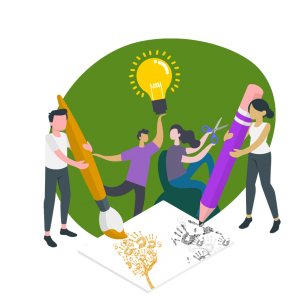Euro-Med bingo

The purpose of the exercise is twofold as it allows the group of participants to get to know each other and to learn about Euro-Mediterranean cultures and countries.
The exercise should be implemented in an space large enough to allow participants to move around and to speak with everybody.
Hand out a copy of the Euro-Med bingo printout to each participant. Participants should find out the answers to each of the questions in the Bingo by asking them to different persons in the group. Each question answered by a different person.
Participants should write in the “Bingo” handout the answer and the name of the person who gave the answer.
The first participant who completes all the questions should shout “BINGO” and then the sharing is finalised.
Call all participants back in a circle to share the results of the Bingo. Question by question, ask participants to give their answers. Note if there are different answers to the same question and pay attention to participants’ reactions.
If needed you may ask for clarifications on the answers given.
Once the summary is completed go for the debriefing with the group. The following questions may help to guide it:
Have you learnt something new about another country/culture you did not know?
Did you find some similarities/differences between your culture/ country and those written down by other participants about aspects of the Euro-Med region?
Where you surprised by any answer?
Is there any other question you would like to add to the bingo? Why?
It is important to adapt the Euro-Mediterranean Bingo to the group of participants you are working with and to the context of the activity.
During the exercise, it may happen that nobody in the group can find an answer to a certain question, be ready to support participants in finding some answers. Alternatively, you may shorten the exercise stopping it before “Bingo” is shouted.
As a reflection of the activity facilitator may question to what degree do we really know about the other Euro-Mediterranean cultures and peoples. Other spaces/ activities of the intercultural encounter may serve to go deeper on the “discovery of the other”.